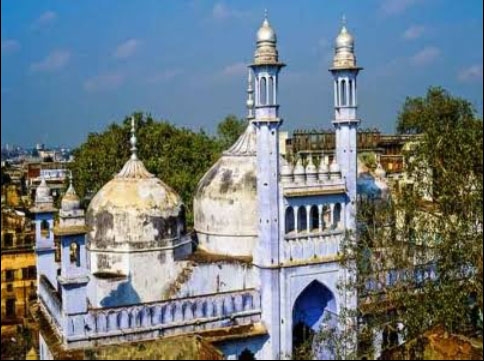
ASI submits survey report on Gyanvapi mosque, court reserves verdict
Varanasi, Dec 18 (IANS) The Archaeological Survey of India (ASI) on Monday submitted a 1,500-page survey report on the Gyanvapi mosque at a Varanasi court in a sealed cover.
ASI submitted the report before the Varanasi district Judge A.K. Vishvesha.
The court has reserved its verdict on the matter.
Last week, the court had given a week’s extension to the ASI to submit a scientific survey report of the Gyanvapi mosque complex in Varanasi.
Talking to reporters, Madan Mohan Yadav, a counsel for the Hindu side, said: “The ASI has submitted its scientific survey report before the Varanasi District Court. ”
On the other hand, a petition has been moved by the Anjuman Intezamia Masajid Committee (which manages the mosque) seeking information about the survey report.
After the submission of the report, the Hindu worshippers prayed before the court to make the report public and sought directions for the supplying of copies of the report to all parties.
The ASI conducted a scientific survey of the Gyanvapi complex in Varanasi as per the July 21 order of the Varanasi District Judge to determine if the mosque was constructed over a pre-existing structure of a Hindu temple.
On August 4, the Supreme Court refused to stop the ASI from surveying the mosque, except the ‘wuzukhana’ area where a ‘Shivling’ was claimed to have been found last year.
Taking on record an undertaking made on behalf of the ASI that no excavation would be done at the site and no damage will be caused to the structure, the court had allowed the survey to take place.
The court had ordered thus while disposing of a petition filed by Anjuman Intezamia Masjid Committee (which manages the Gyanvapi Mosque at Varanasi) challenging the Allahabad High Court order (of August 3) which permitted the ASI survey.
On July 21, Varanasi District Judge directed the ASI Director to conduct a “scientific survey” of the Gyanvapi mosque premises except for the area that was sealed earlier (wuzukhana) to find out if the same has been built over a pre-existing structure of a Hindu temple.
This order was upheld by the Allahabad High Court on August 3.
